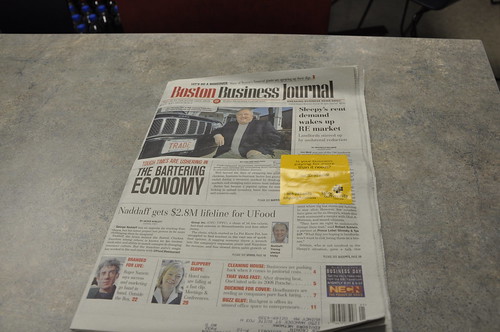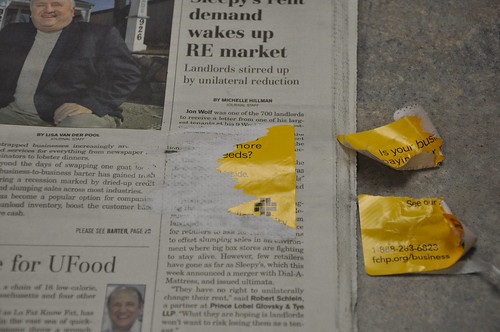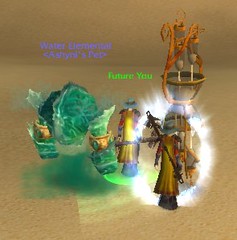It IS A Numbers Game – Thinking About What Numbers Actually Matter
Jeff Pulver asked me to speak at Social Media Jungle: Boston and gave this intriguing guideline:
At Social Media Jungle, our discussion leaders will be presenting their talk as if they were sharing a blog post. And the people in the room will be asked to provide immediate comments to the content being shared which in turn will start a conversation.
 So here’s the blog post we’ll be sharing. What numbers do matter in social media? After all, if you intend to use social media for business, then numbers have to enter the conversation at some point – but what numbers? Is it numbers of friends, followers, connections? What about the stalwarts of marketing – leads, conversions, sales? What really matters?
So here’s the blog post we’ll be sharing. What numbers do matter in social media? After all, if you intend to use social media for business, then numbers have to enter the conversation at some point – but what numbers? Is it numbers of friends, followers, connections? What about the stalwarts of marketing – leads, conversions, sales? What really matters?
To answer this question, think about your typical marketing funnel:
Audience – who’s eligible to use your product or service
Prospects – who in your audience is most likely to use your product or service
Leads – who in your prospects you’ve reached out to or made a connection with and has expressed interest in your product or service
Conversions – who in your leads has made the decision to get your product or service
Evangelists – who in your conversions to customers loves your product or service so much that they’re eager to talk about it
For any given product or service, you can attach definable numbers to each of the stages. But that’s not enough, not to grow a business by.
See, the trouble with numbers like this is that they answer the question of what. What happened? What isn’t enough, though, because you’re dealing with human beings, and that means in addition to what, you also have to be able to address why. Why did something happen? Why did the lead choose product one over product two? Why did the customer abandon you?
This is where communication matters most. A high bounce rate – the number of people who visit your web site – may mean people hate your site and just leave in disgust. It may also mean people found exactly what they wanted on your site thanks to great navigation and content, got what they needed, and moved on. Which is the truth? If you don’t ask why, if you don’t ask the customer why, you’ll never know – and that means you may be making business decisions based on faulty assumptions.
I can’t tell you the number of times I’ve heard a marketing executive say, “Well, I think our customer wants X” or “I think our customers are buying Y on our site because…” and be completely wrong because said marketing executive wasn’t the customer. If you don’t ask, you’ll never get to know why, and that in turn blinds you to the most important question of all…
… now what? You know what’s happening. You know why it happened. Now what? What do you do to steer yourself or your business in the direction you want it to go? This is where experience matters most and where scientific thought is imperative. Once you know what numbers aren’t meeting your expectations and why, you have to come up with a few scenarios to test and examine.
For example, in old school email marketing, we know for sure that the open rate of an email campaign is principally governed by the subject line. The subject line is the digital equivalent of the envelope, and if the envelope is unappealing, no one’s going to open it, even if the contents are valuable. So you test – you fire off a series of test messages with different subject lines and you assess which subject line had the best open rate. Do this over and over again, and you begin to get an instinctive understanding of what subjects work best for your audience.
So those are the three questions that you need to apply to any kind of numbers – what happened, why did it happen, and now what? Let this relatively simple – because simple doesn’t mean easy – framework guide you in judging which numbers should matter to you. Let’s look at a few numbers that might or might not matter.
ROI: ROI is a largely unhelpful number. It’s important, to be sure, because in this economy you absolutely want some idea of what you’re getting for your money. ROI is only a small piece of the puzzle, however, because knowing ROI doesn’t necessarily lend insight into the why or now what, and that’s what makes it unhelpful. Can you judge social media ROI? Sure. Just ask a customer how they found out about you. If the answer is never social media, then social media’s obviously not working for you. That said, ROI doesn’t especially guide you to understand why you’re not getting the financial results you want, nor does it especially lend insight as to what to do next.
Audience: Does the number of followers/friends/connections matter? No. Does the number of right followers/friends/connections matter? Absolutely. My favorite example of this is the Gulfstream salesman. If he has 100,000 followers on Twitter but none of them buy an airplane from him, then he’s not going to get the results he wants. If he has 3 friends on LinkedIn but two of them buy airplanes, then that’s all the social media he needs.
Views/Visitors/Visits: Again, another what number, but at least this one tells you if people are finding their way to the destination you want them to get to. If they’re not making it here, wherever here is, then it’s worth digging into why. It may be something as simple as a URL that no one can spell correctly or as complex as your brand’s association with something unpalatable.
Leads: A what and why number – what happened tells you how many people want your product or service, and communicating with them will lend you the insight you need as to why – what was it about your product or service that made them want to take action.
Customers: A what and why number – what happened tells you that people find your product or service valuable enough to make a tangible commitment to it, and asking why should lend you guidance in understanding what most compelled them to make that final jump.
Do you see a trend here? The more valuable numbers are what and why numbers – they’re numbers centered around a behavior as opposed to a static fact. The more action required of someone, the more commitment given, the more insight you can gain into the number and the more action you can take because of it.
Take a look at your social media efforts. Whenever and wherever you are trying to apply some numbers to your social media efforts, ask yourself the trifecta of questions with an eye towards action. Does this number answer what happened? Does communicating with the customer answer why this number is what it is? Does knowing the business and your fellow woman or man tell you what you should do next to improve that number?
See you in the jungle.
Did you enjoy this blog post? If so, please subscribe right now!



Get this and other great articles from the source at www.ChristopherSPenn.com





 We banter a lot in discussions about social media and the various applications of it. Twitter, for good or ill, has come to dominate a lot of people’s thinking about what social media is, despite it being only a small piece of the puzzle. That said, Twitter does a great job of encouraging brevity with a 140 character restriction per message. Sometimes this creates inscrutability or long streams of drivel broken into bite size chunks, but sometimes…
We banter a lot in discussions about social media and the various applications of it. Twitter, for good or ill, has come to dominate a lot of people’s thinking about what social media is, despite it being only a small piece of the puzzle. That said, Twitter does a great job of encouraging brevity with a 140 character restriction per message. Sometimes this creates inscrutability or long streams of drivel broken into bite size chunks, but sometimes…







